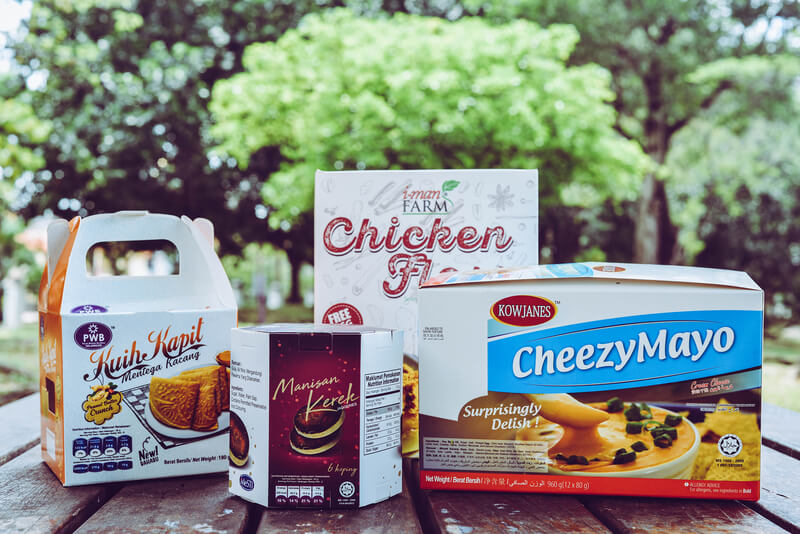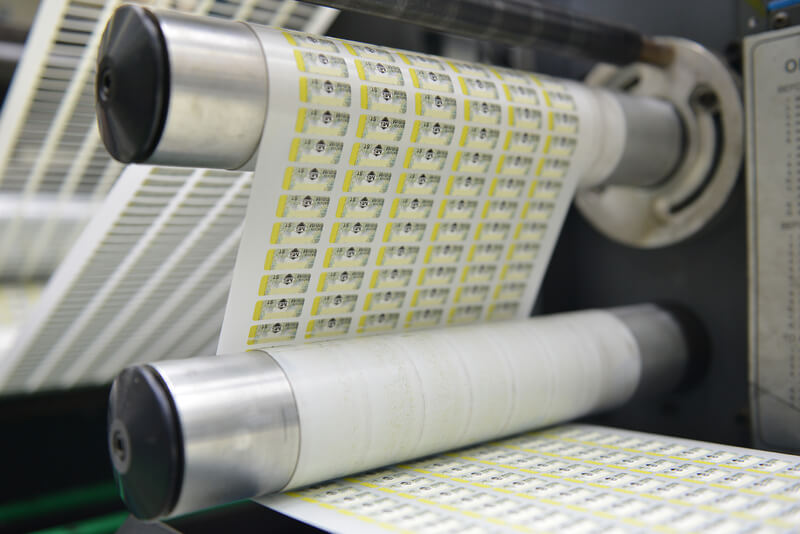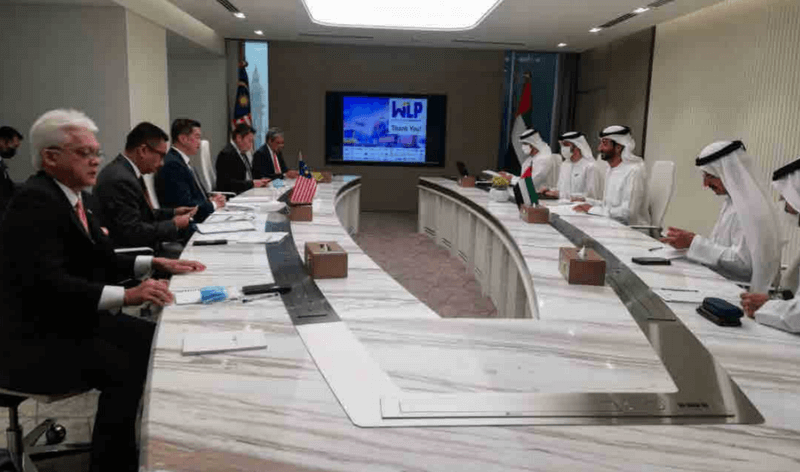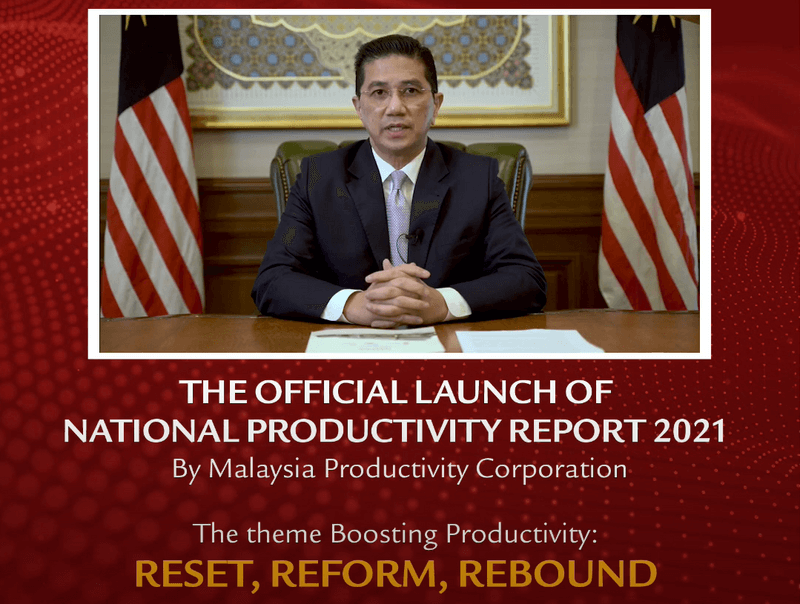Accelerating Entrepreneurial Growth
The Packaging and Security Design Centre (PSDC), SIRIM, Provides a Range of Programmes and Initiatives to Assist Entrepreneurs During These Difficult Times

The COVID-19 outbreak is an unprecedented tragedy that has affected millions of people all across the world. The economy has not been spared. In Malaysia, businesses have been significantly disrupted due to the implementation of the Movement Control Order that still continues in varying stages today. This has been further exacerbated with manpower shortage issues due to some staff members getting infected or having to undergo self-quarantine.
In particular, small and medium enterprises (SMEs), as well as micro-enterprises, were badly affected. With limitations in terms of supply chain disruptions and lack of employees, many were forced to operate at partial capacity or cease operations completely.
As one of SIRIM’s Strategic Business Units, Packaging and Security Design Centre (PSDC) has been committed to serving its clients amidst the challenging environment. With the global economy experiencing a slowdown ever since the pandemic began, PSDC has been playing a key role in supporting the government agenda to enhance the socio-economic growth of Malaysia’s B40 population and entrepreneurs in a bid to stimulate the nation’s economy.
Powering the Success of Entrepreneurs
The Packaging and Security Design Centre (PSDC) focuses on numerous commercial roles through its three business lines. These are:
- Security Design – providing security solutions for brand protection and safeguarding products or documents against counterfeiting, forgery and tampering
- Packaging Design – enhancing product transformation through branding, labelling and innovative packaging
- Entrepreneur Development – nurturing entrepreneurship via customised training and entrepreneur development programmes
One of its staple offerings is the Entrepreneur Development Programme with customisable modules to cater for the diverse needs of the entrepreneurs. An example is the SIRIM-ECER Entrepreneur Development Programme that focuses on those at the East Coast Economic Region (ECER), namely Kelantan, Terengganu, Pahang and Johor.
“We offer customised and structured modules that include training, workshops and consultancy services on quality management, marketing, advisory and facilitation for MeSTI and Malaysian Halal certification scheme; product transformation through enhanced packaging, market outreach programme as well as impact assessment” shared Rafidah Mokhdar, the Chief Executive Officer of PSDC. (Makanan Selamat Tanggungjawab Industri (MeSTI), or the "Food Safety is the Responsibility of the Industry", is a food safety programme undertaken by the Ministry of Health (MOH). The objective of MeSTI is to put in place a system for the maintenance of food hygiene and process control which includes food safety assurance and food traceability.)
From the time the programme was introduced in 2013 until December 2020, a total of 481 entrepreneurs have been nurtured and an overall increase of 38% in total sales and 27% in job creation has been recorded.

PSDC offers several packaging design-related services to the F&B industry
Packaging Prominence
Like most industries, the food and beverage (F&B) sector in Malaysia has had its fair share of ups and downs throughout the COVID-19 crisis. During the initial shock of the first phase of MCO, consumer demand shifted drastically. As people were not allowed to dine out, consumers moved to grocery purchases. Panic buying and stockpiling, in particular, saw food packaging demand rise. At a later stage, consumers adapted to the situation and became more inclined to making their purchases online. This led to a strong acceleration of e-commerce shipments and home delivery services.
Subsequently, packaging choices will also be affected with consumers preferring designs and substrates that address hygiene and safety concerns more.
“F&B players must therefore keep abreast and be alert about new trends and changes in consumer behaviours in order to identify new opportunities. The ability to adapt and offer products that best meet the needs of e-commerce and consumer sentiments on safety and health concerns as well as convenience of packaging is vital for the F&B sector to grow further,” said Rafidah.
As part of its core business expertise, PSDC offers several packaging design-related services to the F&B industry. These include customised training on packaging specifically the Biz Transformation Programme to the development of packaging namely Innopack Programme (Innovative Packaging) and Green-Blue Packaging.
The first offers customised entrepreneurship training programmes with the aim of enhancing participants’ understanding of the importance of brands, labelling and innovative packaging, an entrepreneurial mindset and marketing.
Innopack Programme, on the other hand, encompasses product branding, enhancement and transformation through the development of the product’s packaging. PSDC’s services under this banner include product packaging design, brand and trademark registration, nutrition testing and analysis, labelling, advisory and consulting, and printing of the product packaging.

Green-Blue Packaging
Finally, Green-Blue Packaging refers to a paper-based and innovative packaging that combines eco-innovation and environmentally friendly packaging. Developed from food-grade paper materials and utilising soy ink for printing, it serves as an alternative to polystyrene or plastic-based packaging for food. Green-Blue Packaging can be customised to different types, sizes and designs, including single compartment, triple compartment, bowl, noodle box and cup designs, to accommodate customers’ requirements.
Moving forward, PSDC is looking at embarking on Smart Packaging. Although still at the beginning stages of development, Smart Packaging opens up a world of possibilities. In essence, Smart Packaging encompasses elements of Active Packaging and Intelligent Packaging. The former refers to packaging that interacts with the contents, thus improving the shelf life or quality of the contents during storage. The latter, meanwhile, offers an additional benefit that goes beyond the packaging, allowing it to “communicate” with the outside world.
“Although the technology for smart packaging is already available in many areas, the mass application of this technology is still low due to high production costs. The various technologies and materials will require higher investments in the production process. As such, it will be a challenge to balance the demands of technological requirements with consumer readiness to pay for the product,” said Rafidah. “Nevertheless, we are hopeful that this initiative will fill a gap in Malaysia. The potential and added value offered by Smart Packaging will be immensely beneficial for consumers, and profitable for manufacturers and retailers alike.”
An Intelligent Solution
The incorporation of intelligent elements in Smart Packaging means that the packaging can now include diagnostic and indicator functions to monitor the condition of the product and collect information like freshness, temperature and storage time. Track and trace technology such as the QR (quick response) code, radio frequency identification (RFID) and near-field communication (NFC), on the other hand, provides additional information and facilitates traceability using relevant applications with smartphones.
To cater to current consumer sentiments, an attractive and on-trend packaging design is a must. However, mere appearances should not be the primary factor in determining the design of the Smart Packaging. There is a need to focus on the benefits that the business and consumers can reap from it. Other aspects to be considered include convenience and the ability to protect the product. With all these in place, “smart” packaging will be well received by all.
Brand Protection
Counterfeit issues are rampant in today’s climate. In fact, the counterfeit product market is valued at more than a trillion dollars and has the ability to cause significant economic damages. This does not only lead to financial loss among the brand owners but, more importantly, it also increases risks to consumer health and safety. Consequently, with shifting consumer trends as well as a growing concern over food safety, it is now more necessary than ever to have more effective solutions in stemming the proliferation of counterfeit products.
This is where PSDC’s expertise in security packaging can help. “We offer integrated solutions to prevent counterfeiting, combining technologies from security design and printing techniques and security materials such as ink and substrates with track and trace technology to facilitate product information, verification and authentication for the benefit of both the consumer and brand owner,” said Rafidah.

PSDC’s expertise in security packaging offers track and trace technology for better security
Security features and printing techniques include:
- Security design such as hologram, watermarking, guilloche pattern, numismatic text, etc
- Colour-changing inks and invisible inks
- Tamper-evident security substrate
Going Virtual
One of the new trends that emerged due to the pandemic was a mass migration online. For one, many businesses have opted to work remotely from home, while social distancing requirements have prompted organisations to adopt video conferencing as the main mode of communicating with employees, business associates and other stakeholders.
“All these have led to a digital push that necessitated industry players to kick-off and optimise their digital capabilities,” said Rafidah. “Consequently, we have quickly responded to the new normal and transitioned to providing services online, while at the same time understanding our customers’ needs and readiness towards digitalisation,” she continued.
Among the services provided via online platform are design review, workshops, training and advisory; enhanced modules and the introduction of online or e-commerce for marketing purposes; as well as educating and assisting entrepreneurs on how they can utilise various existing e-commerce platforms such as social media, Shopee and Lazada as leverage.
In line with current consumer trends that favour online purchasing and home delivery, PSDC has taken the initiative to introduce online/e-commerce modules in its Biz Transformation training and Entrepreneur Development programmes since the early stages of the pandemic. These modules provide participants with a solid understanding of e-commerce and how they can market their products online.

“Malaysians today are spending more time online and are more willing to make online purchases. This can be attributed to changes in behaviours such as having to work from home or exploring new hobbies while at home, which, in turn, have presented new opportunities in e-commerce.” – Rafidah Mokhdar, Chief Executive Officer of PSDC.
According to Rafidah, “Malaysians today are spending more time online and are more willing to make online purchases. This can be attributed to changes in behaviours such as having to work from home or exploring new hobbies while at home, which, in turn, have presented new opportunities in e-commerce.
“The value-added content and facilitation in the e-commerce marketplace provided by PSDC help to create awareness and enhance understanding among the entrepreneurs, especially in the F&B sector. By venturing on e-commerce and utilising social media to market their products, together with upgraded and innovative packaging, entrepreneurs will find it easier to expand their markets, increase their sales and be more competitive in their businesses.”
Nevertheless, even while the pandemic accelerated digitalisation adoption in general, she cautioned that SMEs and micro-enterprises are still at risk of being left behind. “Digital challenges continue to be a major hurdle for them. These include lack of relevant knowledge and strategy, resources and funding; as well as an uncertain return on investment to allow for the full and seamless implementation of digitalisation in their operations,” she said.
Many of the SMEs and micro-enterprises also faced difficulties with online connectivity and in communicating with their customers and suppliers. “They have to grapple with low bandwidth or unstable connectivity, for example. This is where government policies and interventions can play a crucial role in shaping the future of the country’s digital economy,” she concluded.
Visit https://www.sirim.my/services/packaging-security-design to find out more about PSDC and how it can help SMEs and micro-entrepreneurs to get through these trying times and embrace new norms in the economic landscape.
















